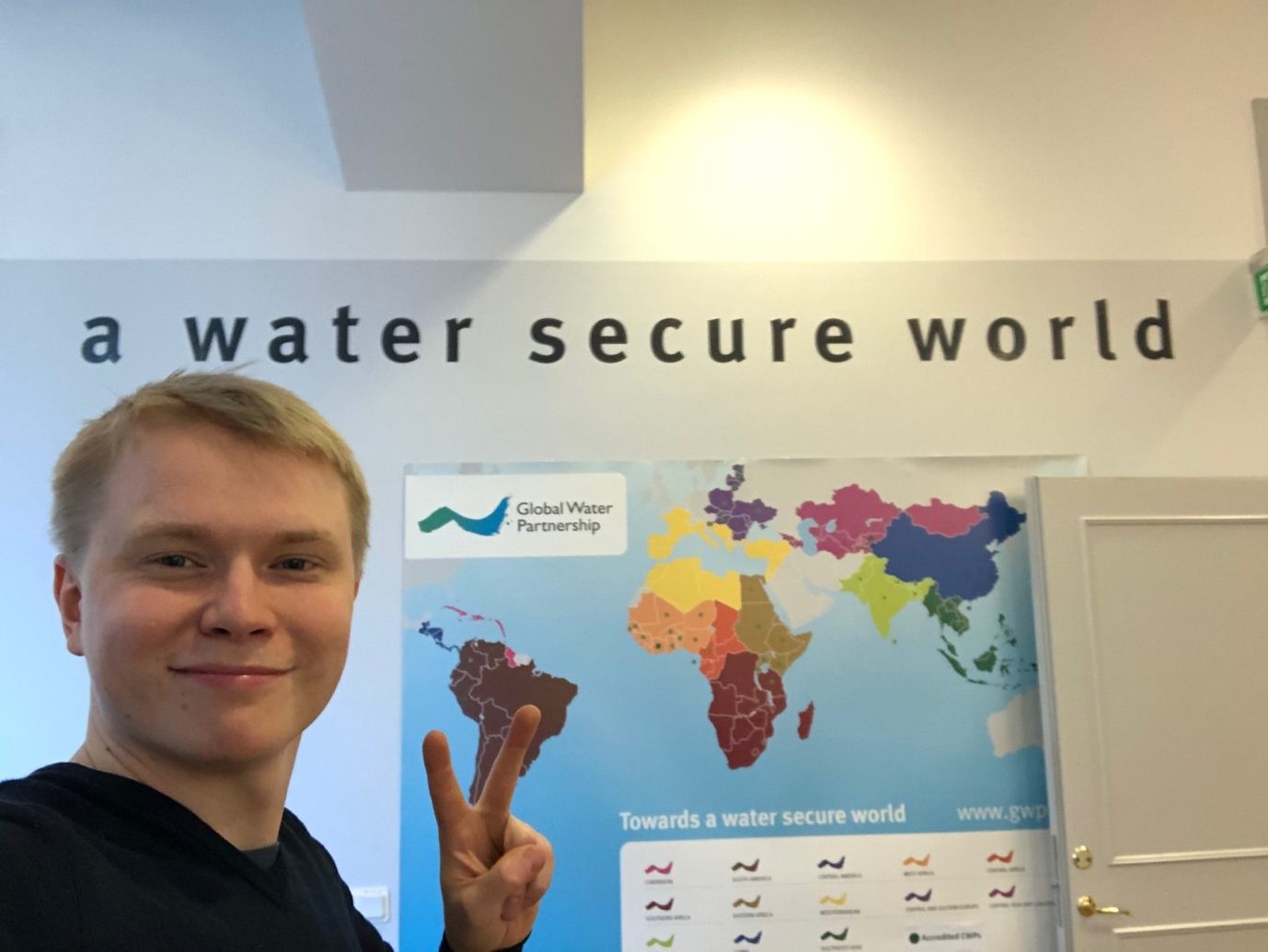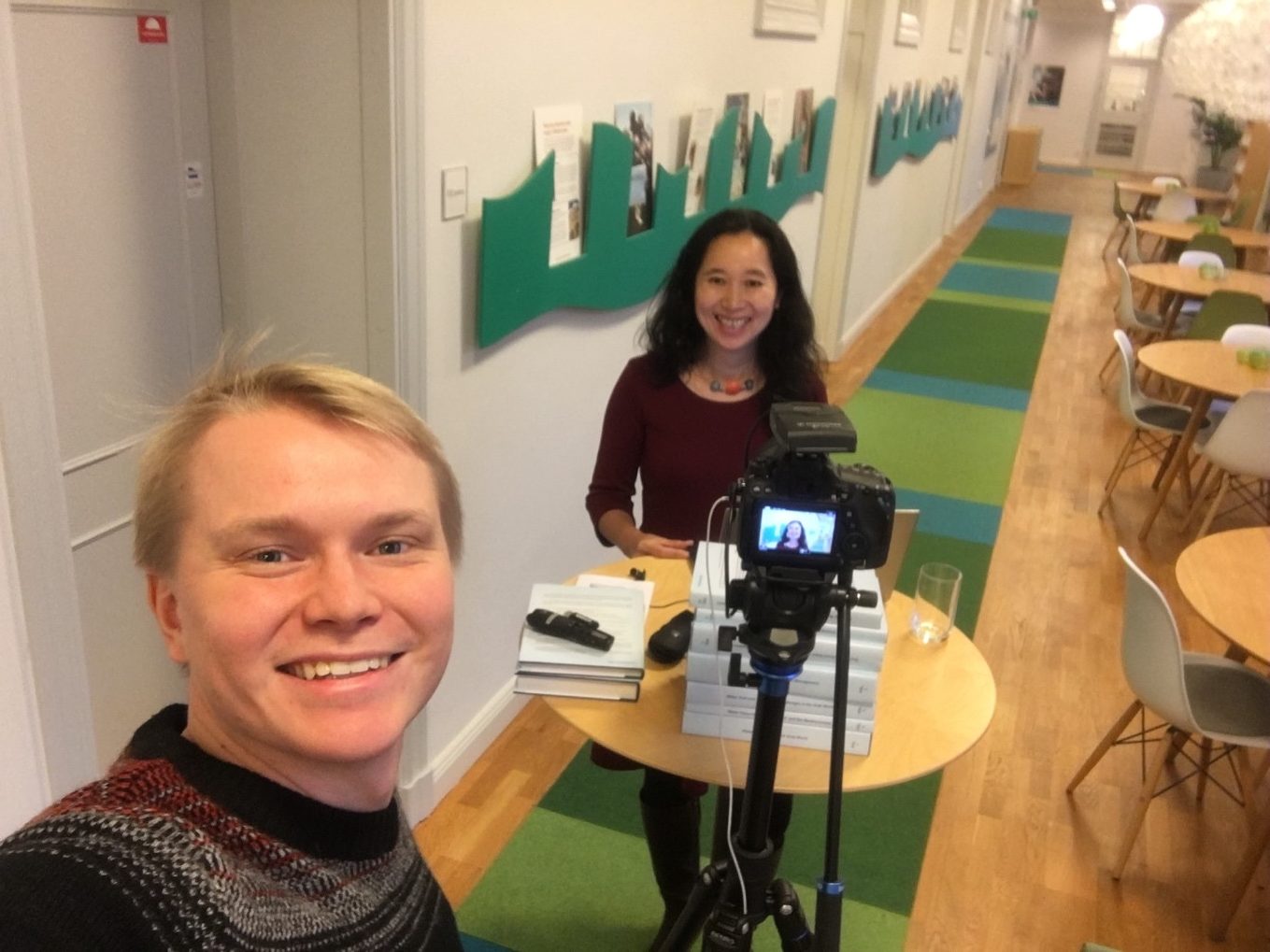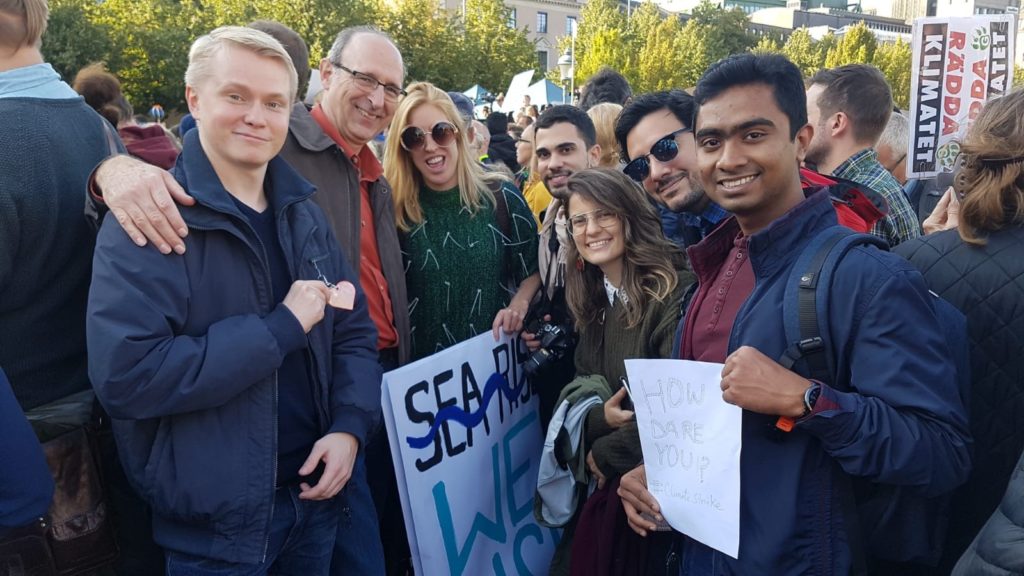Right after finishing my master’s thesis, I got the chance to do an internship at Global Water Partnership in Stockholm, Sweden. I have always been fascinated by such organisations, so I jumped at this opportunity to immerse myself in the global water scene. What followed was a hectic but rewarding journey across the sea.
Drifting Towards Global Waters
I presented my master’s thesis on water diplomacy at the World Water Week 2019. Prior to my presentation, I visited the Global Water Partnership (GWP) booth as their name had popped up quite a few times during my studies and I was interested to hear more about them. I must have made enough of an impression as straight after my presentation, I was approached by their Senior Network and Transboundary Cooperation Specialist about a possible internship.
The GWP was founded in 1996 to promote an integrated approach to water resources management globally. Their vision is a water-secure world, and their mission is to advance governance and management of water resources for sustainable and equitable development. The GWP network operates all over the world and their most important tasks are capacity building and knowledge sharing, with the latter being the main focus of my internship.
It so happened, that the Transboundary Water Cooperation Team at GWP had just begun the process of creating a Massive Open Online Course (MOOC) on Governance for Transboundary Freshwater Security. My master’s thesis topic, water diplomacy, was one of the six modules to be covered in the MOOC. Initially, my main task was to edit and finalise course content, thanks in part to my hobby of editing videos.

Figure 1: Enjoying working towards a water-secure world!
Deep Dive into MOOCs
I did not have any prior experience in organising online courses. Looking back, the original plan for the course might have been slightly ambitious with 80 video presentations by experts from all over the world. Right from the start, we encountered challenges, such as widely differing video quality, delays in turnover of materials and problems with external editors. There was simply quite a lot to handle for our small team.
In the early stages of the process, I took upon myself the task of organising all the materials. This was a great learning experience for me and gave me a first glimpse of project management on a large scale. I learned a lot about effective labelling and organising a wide variety of file types, such as videos, presentations, copyright declarations and bios. This system needed to be extensive, but also user friendly.
Thanks in part to video editing and also the review process, I can happily say that I have watched every single one of the MOOC videos at least five times. This might sound exhausting (and at times it was), but it did provide an immersion into relevant international water themes. I also had some great discussions with experts while filming their presentations and learned how to assess the materials with a critical eye during the review and promotion of the MOOC. Overall, the internship taught me the importance of careful project planning, management and communication, and, on a personal level, the value of not over-exerting yourself through expectation management.

Figure 2: MOOC Filming Session with Yumiko Yasuda, Senior Network and Transboundary Cooperation Specialist at GWP.
At times the MOOC felt like an impossible mountain to climb, which made its final completion taste even sweeter. I am truly proud of the end product, even more so because it is free, self-paced and available for anyone. If you’re interested, you can enrol here: https://www.edx.org/course/governance-for-transboundary-freshwater-security
Riding the Wave
My GWP internship provided a spectacular peek into the international water sector. Witnessing daily office routines was intriguing and I enjoyed the opportunity to take part in regular and ad-hoc meetings on a wide variety of topics. One of the most fruitful things for me was the lunch and coffee breaks, which gave me an opportunity to discuss with colleagues in a more relaxed manner. It was great to see how seamlessly our multi-cultural office functioned and I could always sense the mutual respect and appreciation amongst the staff, despite the endless amounts of work. Looking back, I am also glad that I managed to complete almost all of my internship in Sweden before COVID-19 struck.

Figure 3: Thank you GWP friends and see you again!
While it has been wonderful to work and grow professionally at GWP and Aalto University, I constantly felt that a piece of my puzzle is missing. It has been difficult to talk about water and development themes without experience on the ground and my internship made me realise that now is the time to take the next step. Thus, during the latter half of my internship, I applied for and received the position of Field Specialist in a water and development project in Far-Western Nepal. This is my chance to gain some much-needed experience and confidence for future endeavours!
If you want to follow my adventure in Nepal, you can check out my Instagram (@epikstories), the project Instagram (@rvwrmp_nepal), project website (www.rvwrmp.org.np) or my podcast (in Finnish), where I talk about my experiences and observations: https://podcasts.apple.com/…/podca…/epikstories/id1552627690
I would also like to thank my two sponsors: Sven Hallin Research Foundation and MVTT for helping me fund this incredible experience. It would not have been possible without their support.
Erik Salminen (M.Sc. in Tech.) has worked with Water Diplomacy and Transboundary Water Cooperation at Aalto University and Global Water Partnership. Currently, he is searching for the source of professional fulfilment as a Field Specialist in the Rural Village Water Resources Management Project in Far-Western Nepal (implemented by Finnish Consulting Group).

